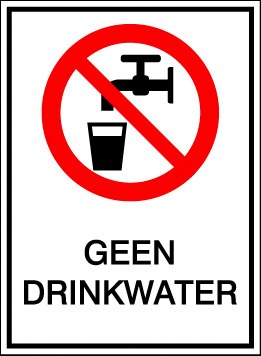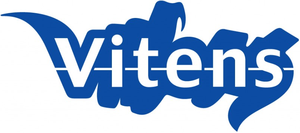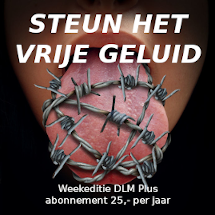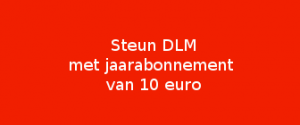
Ondanks verlaging van het drinkwatertarief door Vitens wordt door allerlei heffingen drinkwater toch duurder. Deze heffingen worden door de overheid aan drinkwaterbedrijven opgelegd.
Belasting op Leidingwater (BOL) wordt sinds 2000 geheven. Om het begrotingstekort terug te dringen werd het tarief in 2014 verdubbeld naar 33 cent per m3. Dit stond haaks op de belofte door het eerste Kabinet Rutte twee jaar eerder om deze belasting juist te laten vervallen. Jaarlijks verdwijnt nu zo’n 250 miljoen euro via de BOL in de schatkist.
Drinkwaterbedrijven hebben te maken met Belasting op Leidingwater (BoL), BTW, provinciale grondwaterheffing en precarioheffing. BoL en BTW zijn de verbruiksbelastingen die een waterbedrijf namens de consument afdraagt aan de overheid. De laatste twee heffingen zijn kostprijsverhogend en moeten altijd worden doorberekend aan de consument, omdat waterleveranciers standaard kostendekkend werken.
Inmiddels bestaat de drinkwaterprijs voor 36 procent uit belastingen.
Precarioheffing
Sinds 1958 bestaan er overeenkomsten met waterbedrijven die ervoor zorgen dat gemeenten geen precario kunnen heffen op waterleidingen. Door de recente Rijksbezuinigingen hebben lokale overheden kraanwater echter herontdekt als inkomstenbron. Steeds meer Nederlandse gemeenten heffen precariobelasting op waterleidingen die door gemeentegrond lopen of zijn van plan deze in de toekomst op te leggen. In sommige gevallen zal het bedrag kunnen oplopen tot 50 euro per huishouden per jaar.
 Wolter Odding, directielid van Vitens, legt uit waarom Vitens tegen de invoering is van precarioheffing. ‘Een doos van Pandora dreigt open te gaan, want bijna iedere gemeente wil gaan heffen. Het is een soort sluiproute. Een indirecte onroerendezaakbelasting die nog hoger uitvalt door bijkomende extra kosten en BTW die we moeten doorberekenen. Wat veel gemeentes niet weten is dat wij de precarioheffing direct terugleggen op de inwoners van de betreffende gemeente.
Wolter Odding, directielid van Vitens, legt uit waarom Vitens tegen de invoering is van precarioheffing. ‘Een doos van Pandora dreigt open te gaan, want bijna iedere gemeente wil gaan heffen. Het is een soort sluiproute. Een indirecte onroerendezaakbelasting die nog hoger uitvalt door bijkomende extra kosten en BTW die we moeten doorberekenen. Wat veel gemeentes niet weten is dat wij de precarioheffing direct terugleggen op de inwoners van de betreffende gemeente.
De gemeentes hebben het geld blijkbaar hard nodig en maken nu maximaal gebruik van de mogelijkheden door waterleidingen aan te boren als geldbron.’ De Vereniging van Nederlandse Gemeenten (VNG) :‘Het lokaal belastinggebied is toe aan herziening,’ zegt een woordvoerder. ‘De precariobelasting hoeft daarbij niet per se te blijven bestaan als er andere manieren zijn om begrotingen sluitend te krijgen. Wij dringen bij het Rijk aan op een verschuiving van belastingen van Rijk naar gemeente en vereenvoudiging van het stelsel.’
Eind vorig jaar werd minister Plasterk van Binnenlandse Zaken in een breed gesteunde motie verzocht haast te maken met de wet die het gemeenten, provincies en waterschappen onmogelijk maakt precario te heffen op netwerken van nutsbedrijven.
Wolter Odding:
‘Terwijl wij ons drinkwater als eerste levensbehoefte zo goedkoop mogelijk moeten houden, kan de heffing van precario straks ongecontroleerd plaatsvinden. Het zal toch niet zo zijn dat drinkwater straks in hetzelfde rijtje staat als tabak en alcohol qua belastingopbrengsten? Dat valt niet uit te leggen.’
Rob Vellekoop, 3 maart 2016


De eerstvolgende dienst die geleverd gaat worden aan banken via hun dochterondernemingen (verzekeringsmaatschappijen) is het invoeren van een verplichte WA voor honden. Twee vliegen in 1 klap, het is meteen een handige manier om het laatste verdedigingsmiddel (waakhonden) uit handen van het klootjesvolk te nemen. Nu zal men gekscherend zeggen, een waakhond is kansloos tegen een vuurwapen, ja wel in een open ruimte zoals op straat maar in een beperkte ruimte zoals een huis, zeker eigen huis, wordt het een compleet ander verhaal waarbij de kansen van de waakhond enorm toenemen. Wat veel mensen niet willen begrijpen is dat de meesters maar 1 angst hebben, dat het volk het spel doorkrijgt en verhaal komt halen, het is dus wenselijk om het klootjesvolk zo kort mogelijk aangelijnd te houden (zo beperkt bewapend als mogelijk).
Humans are the only species on planet earth who need money for living and surviving… And these species consider them self as five and at the top of nature…… Ai ai ai carmaba que estupido….
Speech Commonly Attributed To Chief Seattle
Chief Seattle
In 1851 the Suquamish and other Indian tribes around Washington’s Puget Sound were faced with a proposed treaty which in part persuaded them to sell two million acres of land for $150,000. Chief Seattle of the Suquamish tribe was a very spiritual and articulate man. If he gave a speech on that occasion, it might well have sounded like this:
How can you buy or sell the sky, the warmth of the land? The idea is strange to us. If we do not own the freshness of the air and sparkle of the water, how can you buy them?
Every part of this earth is sacred to my people.
Every shining pine needle, every sandy shore, every mist in the dark woods, every clearing and humming insect is holy in the memory and experience of my people. The sap which courses through the trees carries the memories of the red man.
The white man’s dead forget the countryof their birth when they go to walk among the stars. Our dead never forget this beautiful earth, for it is the mother of the red man.
We are part of the earth and it is part of us.
The perfumed flowers are our sisters; the deer, the horse, the great eagle, these are our brothers.
The rocky crests, the juices in the meadows, the body heat of the pony, and man–all belong to the same family.
So, when the Great Chief in Washington sends word that he wishes to buy land, he asks much of us. The Great Chief sends word he will reserve us a place so that we can live comfortably to ourselves.
He will be our father and we will be his children. So we will consider your offer to buy our land.
But it will not be easy. For this land is sacred to us.
This shining water that moves in the streams and rivers is not just water but the blood of our ancestors.
If we sell you land, you must remember that it is sacred, and you must teach your children that it is sacred and that each ghostly reflection in the clear water of the lakes tells of events and memories in the life of my people.
The water’s murmur is the voice of my father’s father.
The rivers are our brothers, they quench our thirst. The rivers carry our canoes, and feed our children. If we sell you our land, you must remember, and teach your children, that the rivers are our brothers, and yours, and you must henceforth give the rivers the kindness you would give any brother.
We know that the white man does not understand our ways. One portion of land is the same to him as the next, for he is a stranger who comes in the night and takes from the land whatever he needs.
The earth is not his brother, but his enemy, and when he has conquered it, he moves on.
He leaves his father’s graves behind, and he does not care.
He kidnaps the earth from his children, and he does not care.
His father’s grave, and his children’s birthright, are forgotten. He treats his mother, the earth, and his brother, the sky, as things to be bought, plundered, sold like sheep or bright beads.
His appetite will devour the earth and leave behind only a desert.
I do not know. Our ways are different from your ways.
The sight of your cities pains the eyes of the red man. But perhaps it is because the red man is a savage and does not understand.
There is no quiet place in the white man’s cities. No place to hear the unfurling of leaves in spring, or the rustle of an insect’s wings.
But perhaps it isbecause I am a savage and do not understand.
The clatter onlyseems to insult the ears. And what is there to life if a man cannot hear the lonely cry of the whippoorwill or the arguments of the frogs around a pond at night? I am a red man and do not understand.
The Indian prefers the soft sound of the wind darting over the face of a pond, and the smell of the wind itself, cleaned by a midday rain, or scented with the pinion pine.
The air is precious to the red man, for all things share the same breath–the beast, the tree, the man, they all share the same breath.
The white man does not seem to notice the air he breathes.
Like a man dying for many days, he is numb to the stench.
But if we sell you our land, you must remember that the air is precious to us, that the air shares its spirit with all the life it supports. The wind that gave our grandfather his first breath also receives his last sigh.
And if we sell you our land, you must keep it apart and sacred, as a place where even the white man can go to taste the wind that is sweetened by the meadow’s flowers.
So we will consider your offer to buy our land. If we decide to accept, I will make one condition: The white man must treat the beasts of this land as his brothers.
I am a savage and I do not understand any other way.
I’ve seen a thousand rotting buffaloes on the prairie, left by the white man who shot them from a passing train.
I am a savage and I do not understand how the smoking iron horse can be more important than the buffalo that we kill only to stay alive.
What is man without the beasts? If all the beasts were gone, man would die from a great loneliness of spirit.
For whatever happens to the beasts, soon happens to man. All things are connected.
You must teach your children that the ground beneath their feet is the ashes of your grandfathers. So that they will respect the land, tell your children that the earth is rich with the lives of our kin.
Teach your children what we have taught our children, that the earth is our mother.
Whatever befalls the earth befalls the sons of the earth. If men spit upon the ground, they spit upon themselves.
This we know: The earth does not belong to man; man belongs to the earth. This we know.
All things are connected like the blood which unites one family. All things are connected.
Whatever befalls the earth befalls the sons of the earth.
Man did not weave the web of life: he is merely a strand in it.
Whatever he does to the web, he does to himself.
Even the white man, whose God walks and talks with him as friend to friend, cannot be exempt from the common destiny.
We may be brothers after all.
We shall see.
One thing we know, which the white man may one day discover, our God is the same God. You may think now that you own Him as you wish to own our land; but you cannot. He is the God of man, and His compassion is equal for the red man and the white.
This earth is precious to Him, and to harm the earth is to heap contempt on its Creator.
The whites too shall pass; perhaps sooner than all other tribes. Contaminate your bed, and you will one night suffocate in your own waste.
But in your perishing you will shine brightly, fired by the strength of God who brought you to this land and for some special purpose gave you dominion over this land and over the red man.
That destiny is a mystery to us, for we do not understand when the buffalo are all slaughtered, the wild horses are tamed, the secret corners of the forest heavy with scent of many men, and the view of the ripe hills blotted by talking wires.
Met vriendelijk groet en een boks,
Pablo
Rutte maakt het de burger tot een hel en maakt het voor het bedrijfsleven wel verdacht te makkelijk?
Glashelder, nietwaar? Ramen gepoetst dus ik mag dat zeggen, haha, met water uit een opvangcontainer.
Slimme truc, keer op keer. Eerst zelf ervaren ( de (r)overheid) dat iets een TE grote uitdaging wordt/is. Dan uitbesteden en direct een flinke klap erbij doen, ik doel hier op de verlaging met 30 %, die gemeenten onlangs kregen opgelegd inzake dat iets. Achtereenvolgens legden gemeenten de last bij de mensen in de gemeenten, door de be-last-ingen te verhogen, met meer procenten dan was overeen gekomen. En verder zoals nu door het heffen van belasting op drinkwater. En ik voorspel, dat dit verder gaat, wanneer wij blijven accepteren.
Gevolg: we mochten er op wachten, tot het zichtbaar werd, nou ja voor wie attent volgt. Veel mensen merken er weinig van, danwel doen hun ogen dicht met het zeggen dat het slechts om enkele euro’s gaat in het geval van de waterprijs, die per 1 januari 2015 kwa belasting met 100 % werd verhoogd! En nu weer. Reden van zwijgen: de emotie angst, begrijpe-lijk.
Direct in aktie komen ware mooier geweest en doelmatiger. Mijn brief bleef onbeantwoord, ook een bekende manier van handelen van (r)overheden.
Keer op keer is wat gebeurt simpel uit te leggen.
Hard roepen dat er problemen zijn en dat lang volhouden, totdat een ieder dat voor waar aanneemt. Volgende stap, de toestand verergeren, en als de mensen murw worden, nog ff oprekken/volhouden. En erna met de oplossing komen. Terwijl ik dan denk en dat ook verkondig, ook nu.: Ok, er is een uitdaging, dusse……..vrijuit een ieder met voorstellen laten komen in de richting van oplossingen, en dan in overleg de best denkbare kiezen. En uiteraard, nabespreken/evalueren, om ervan te leren, nietwaar? Ik blijf roepen in deze woestijn, want die kant gaat het op, denk ik nu.
Het gaat keer op keer anders:murw geworden mensen kiezen de door politici voorgestelde oplossing en vallen zo in een nieuwe kuil, en ik val huilend mee.
Ik voel verdriet en deel dat hier. En ga opgelucht verder, mooie weekwisseling. hartegroet…..
Straks gaan ze ook nog eens de lucht die je inademt, ook nog belasten. Helemaal gestoord zijn ze daar in Den Haag!
Ja want Rutte wil niets liever dan de banken, in wiens opdracht hij werkt, behagen.
Op je energierekening zit ook zoiets als 35% tot 40% BTW. Dat is natuurlijk hardstikke buitensporig en gewoon burgertje pesten. Hetzelfde geldt nu voor waterheffingen, hetgeen toch elementaire kosten levensonderhoud zijn, wat je natuurlijk niet buitensporig mag belasten, lijkt mij?